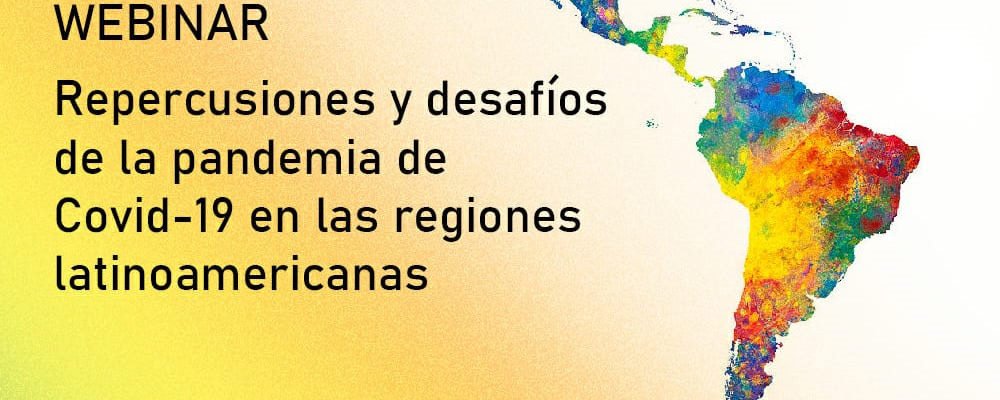- The Academic Director of the Santiago Campus and researcher of CEDER, Dr. Daniella Gac, took part in the international webinar “International repercusions and challenges of the Covid-19 pandemic in the latin american regions” organized by the Observatório do Desenvolvimento Regional of the UNISC, Brazil.
Alongside researchers of Brazil, Argentina and Uruguay, the Academic Director of the Santiago Campus and researcher of CEDER, Dr. Daniella Gac, took part in the international webinar “International repercusions and challenges of the Covid-19 pandemic in the latin american regions”
The meeting, organized by the Observatório do Desenvolvimento Regional of theUniversidad de Santa Cruz do Sul, Brazil, aimed to bring together academics from different disciplines in the field of social sciences to discuss the different repercussions that the pandemic has had on the Latin American southern cone, in addition to its particularities, regional similarities and immediate and future challenges.
In her presentation, Dr. Gac reflected about the challenges that covid-19 presents in Chile and the region, aiming towards the decrease of mobility and the possibility of addressing new alternative forms of development for Latin America.
“This is part of the work that as social scientists we have to do. In Chile, the inequalities of our societies have been evidenced and the political discourse realized that I did not know that there was so much inequality in our country,” she said.
The academic recalled that in Chile the pandemic was preceded by the social outbreak, so the reflection “has to be done from the social but also from the academic regarding the inequalities we live, but also on how to move towards other development models and towards other ways of articulating and coordinating ourselves politically”.
In this context, she stressed that “the fragility of work has been evidenced (…) in Chile it is urgent to study with respect to the precariousness and informality of jobs, where in addition, there is a lack of responsibility of the private with respect to these situations. “
Also, the Dr. Gac stressed that the local becomes more relevant when facing pandemics or social conflicts, especially in the development of research carried out by the academic in non-metropolitan territories.
“Small agricultural producers must be given a place in the organization of food production and the State should be the guarantor of this. In Chile and Latin America we are looking at international markets and we are not worrying about the production of basic foods for our population,” she criticized.
She added that in this sense it is necessary to move towards alternatives and opportunities both nationally and in Latin America, in addition to discussing relevant issues that are sometimes overlooked.
“It is necessary to build Latin American proposals to address the realities (…) that they think about models of sustainable development and social discussion, which have been left aside for many years and that the pandemic forces us to think about how we can move to value our realities,” She said.
The web seminar also counted with the participation of the academics Dr. Silvia Gorenstein of CONICET – CEUR, Argentina, who presented the lecture “New and old topics in agribusiness territories”; Dr. Mireya Valencia of UnB RETE, Brazil, who presented the topic “From agri-food systems to territorially sustainable agri-food systems”; and Dr. Challenge Bertoni de PHES – FCS – UDELAR, Uruguay, who proposed the conversation “neither miracle nor surprise: The importance of the public and the state capacities to face the pandemic in Uruguay”.
The meeting “Repercussions and challenges of the pandemic Covid-19 in the latin american regions”, which was modetated by the academic of the postgrade program in Regional Development (PPGDR) of UNISC, Dr. Rogério L. da Silveira, can be reviewed here












